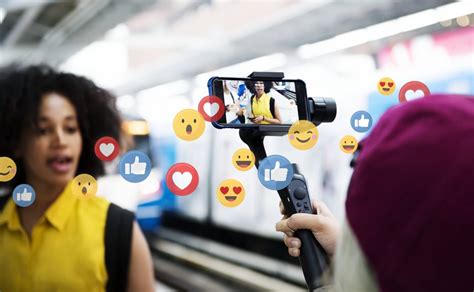
A travel influencer is facing backlash online after sharing a “comfy” flight hack that involved using a child’s airplane bed for her own comfort, drawing criticism for being inconsiderate to other passengers.
Natalie, known as @Natalie.Anz on TikTok, ignited a firestorm of controversy after posting a video demonstrating how she used a child’s inflatable airplane bed extender to create a more comfortable sleeping space for herself on a recent flight. The video, which has since been deleted, showed Natalie stretching out across multiple seats, seemingly undisturbed by other passengers. While she promoted the product as a travel essential, many viewers slammed the move as selfish and inconsiderate, highlighting the potential inconvenience and discomfort it could cause to fellow travelers, particularly those seated nearby. The debate underscores the ongoing tension between personal comfort and shared space in air travel.
The now-deleted TikTok video showcased Natalie setting up the inflatable bed extender, typically designed for young children to lie flat during flights, across her seat and the adjacent one. This allowed her to stretch out fully, effectively occupying space that could have been used by other passengers. The video, captioned with promotional language, quickly garnered attention, but not the positive kind Natalie likely anticipated.
Instead, it sparked a wave of criticism and outrage across social media platforms. Users accused her of prioritizing her own comfort at the expense of others, branding her actions as entitled and inconsiderate. Common complaints centered on the potential obstruction of aisle access, the limitation of space for neighboring passengers, and the overall disregard for shared travel etiquette.
“Imagine being on a flight next to this,” one commenter wrote, capturing the sentiments of many. Others questioned the legality of using such devices, citing potential safety concerns and airline regulations. The incident has reignited the debate about acceptable behavior in the confined and often stressful environment of air travel.
Many pointed out that airlines often have specific policies regarding the use of such devices, primarily for safety reasons. Concerns include the potential obstruction of emergency exits and the disruption of the cabin during turbulence. While some airlines may allow the use of bed extenders for small children under specific circumstances, using them to create a personal sleeping area for adults is generally frowned upon and may even be prohibited.
The outrage surrounding Natalie’s “hack” highlights the delicate balance between personal comfort and consideration for others in shared travel spaces. As air travel becomes increasingly crowded and challenging, issues of etiquette and space management are likely to become even more prominent. This incident serves as a reminder for travelers to be mindful of the impact their actions may have on those around them and to adhere to airline regulations designed to ensure the safety and comfort of all passengers.
This incident also brings into focus the responsibilities of social media influencers. While many influencers promote products and services with the aim of enhancing their followers’ lives, it’s crucial to consider the potential consequences of their recommendations. In this case, Natalie’s promotion of the airplane bed extender backfired spectacularly, leading to widespread condemnation and damage to her online reputation.
The backlash against Natalie’s actions underscores the growing awareness of social responsibility among online audiences. Consumers are increasingly scrutinizing the behavior of influencers and holding them accountable for promoting products and practices that may be harmful, unethical, or inconsiderate. This trend suggests that influencers need to be more mindful of the potential impact of their content and to prioritize responsible and ethical promotion over short-term gains.
The original article also mentions that Natalie has faced similar criticism in the past for other travel-related content. This suggests a pattern of behavior that prioritizes personal comfort and convenience over the consideration of others. It also raises questions about the influencer’s awareness of social norms and ethical considerations.
The incident involving Natalie’s “comfy” flight hack serves as a cautionary tale for both travelers and social media influencers. It highlights the importance of respecting shared spaces, adhering to airline regulations, and being mindful of the potential impact of one’s actions on others. For influencers, it underscores the need to prioritize responsible and ethical promotion over personal gain and to be aware of the growing demand for social responsibility among online audiences.
This situation is not isolated. Numerous incidents of questionable behavior on flights have surfaced in recent years, fueled by the rise of social media and the desire for online attention. From passengers refusing to wear masks to those engaging in disruptive and unruly behavior, these incidents highlight the challenges of managing shared spaces and enforcing etiquette in the air travel industry.
Airlines are increasingly grappling with the issue of passenger behavior and are implementing stricter policies to address it. These policies often include increased fines for disruptive behavior, the banning of unruly passengers from future flights, and enhanced training for flight attendants to deal with difficult situations. However, enforcing these policies can be challenging, particularly in the confined and often stressful environment of an airplane cabin.
The incident also raises questions about the role of airlines in regulating the use of devices like airplane bed extenders. While some airlines have specific policies regarding these devices, others are less clear. This ambiguity can lead to confusion and conflict among passengers. It may be necessary for airlines to clarify their policies regarding the use of such devices and to communicate these policies more effectively to passengers.
The debate surrounding Natalie’s “comfy” flight hack is likely to continue to rage online, serving as a reminder of the importance of etiquette, consideration, and social responsibility in the increasingly interconnected world of travel and social media. It also highlights the need for airlines to clarify their policies regarding the use of devices that may impact the comfort and safety of other passengers. The incident underscores the evolving dynamics of travel in the digital age and the challenges of balancing personal comfort with the needs and expectations of others. The core issue revolves around the unspoken social contract that exists amongst passengers sharing a limited space and resources within an aircraft.
The reactions to Natalie’s video also highlight the difference in perception between the influencer and the general public. While Natalie may have viewed her “hack” as a clever way to improve her travel experience, many others saw it as a blatant disregard for the comfort and convenience of fellow passengers. This disconnect underscores the importance of empathy and perspective-taking in social interactions, particularly in shared spaces.
Furthermore, the incident raises questions about the commercialization of travel experiences. The promotion of products like airplane bed extenders can create a sense of entitlement among travelers, leading them to believe that they are entitled to additional comfort and convenience, even at the expense of others. This trend can contribute to a culture of selfishness and disregard for shared resources.
The incident involving Natalie’s “comfy” flight hack is a microcosm of larger societal trends, including the rise of individualism, the pursuit of comfort and convenience, and the increasing influence of social media. It serves as a reminder of the importance of considering the impact of one’s actions on others and of upholding ethical standards in all aspects of life, both online and offline.
The story also provides a valuable lesson for aspiring influencers. It demonstrates that building a successful online presence requires more than just promoting products and services. It also requires building trust and credibility with one’s audience. This means being mindful of the potential impact of one’s content, upholding ethical standards, and demonstrating a genuine concern for the well-being of others.
In conclusion, the controversy surrounding Natalie’s “comfy” flight hack is a multifaceted issue with implications for travelers, influencers, and the air travel industry as a whole. It underscores the importance of etiquette, consideration, social responsibility, and ethical behavior in an increasingly interconnected and commercialized world. The incident serves as a reminder that personal comfort should not come at the expense of others and that building a successful online presence requires more than just self-promotion.
The ongoing discussion about this incident reflects a larger societal conversation about entitlement, shared spaces, and the impact of social media on our behavior. It is a conversation that is likely to continue as air travel becomes increasingly crowded and challenging. The incident also touches upon the issue of socioeconomic disparities in air travel. While some passengers may be able to afford business class or first class tickets, which offer more space and comfort, many others are forced to travel in cramped and uncomfortable conditions in economy class. This disparity can contribute to feelings of frustration and resentment, which may manifest in inconsiderate behavior.
The availability and affordability of products like airplane bed extenders can also exacerbate these disparities. While these products may be marketed as a way to improve the travel experience for all passengers, they may actually benefit those who are already in a privileged position, allowing them to further enhance their comfort at the expense of others.
The incident serves as a reminder that travel is not just a matter of personal comfort and convenience. It is also a social experience that requires empathy, consideration, and a willingness to share resources and space with others. By being mindful of the impact of our actions on those around us, we can create a more positive and enjoyable travel experience for everyone.
Frequently Asked Questions (FAQ)
1. What exactly did the influencer do that caused the outrage?
The influencer, Natalie (@Natalie.Anz on TikTok), posted a now-deleted video showing herself using a child’s inflatable airplane bed extender to create a more comfortable sleeping space for herself across multiple seats on a flight. This allowed her to stretch out fully, effectively occupying space that could have been used by other passengers, drawing criticism for being inconsiderate.
2. Why were people so upset about the influencer’s “flight hack”?
People were upset because they perceived the influencer’s actions as selfish and inconsiderate. Concerns included obstruction of aisle access, limitation of space for neighboring passengers, disregard for shared travel etiquette, potential violation of airline policies, and the overall prioritization of personal comfort over the comfort of others. Commenters felt that it was unfair for her to take up extra space that could have been used by another paying passenger.
3. Are airplane bed extenders allowed on flights?
It depends on the airline. Some airlines may allow the use of bed extenders for small children under specific circumstances, but using them to create a personal sleeping area for adults is generally frowned upon and may even be prohibited. Airline policies vary, and passengers should check with their airline before using such devices. Concerns include the potential obstruction of emergency exits and the disruption of the cabin during turbulence.
4. What does this incident say about the behavior of social media influencers?
This incident highlights the responsibilities of social media influencers. While influencers often promote products and services with the aim of enhancing their followers’ lives, it’s crucial to consider the potential consequences of their recommendations. In this case, the influencer’s promotion of the airplane bed extender backfired, leading to widespread condemnation and damage to her online reputation. It also underscores the need for influencers to be mindful of the potential impact of their content and to prioritize responsible and ethical promotion over short-term gains.
5. What is the broader significance of this “comfy flight hack” controversy?
The controversy surrounding the “comfy flight hack” is a microcosm of larger societal trends, including the rise of individualism, the pursuit of comfort and convenience, and the increasing influence of social media. It underscores the importance of etiquette, consideration, social responsibility, and ethical behavior in an increasingly interconnected and commercialized world. It highlights the need for airlines to clarify their policies regarding the use of devices that may impact the comfort and safety of other passengers and serves as a reminder that personal comfort should not come at the expense of others. The incident also underscores the evolving dynamics of travel in the digital age and the challenges of balancing personal comfort with the needs and expectations of others.
In-depth Analysis and Expanded Context:
The incident involving Natalie and her airplane bed extender extends beyond a simple case of poor etiquette. It touches upon several complex themes relevant to modern society, travel, and the influence of social media. Here’s a more in-depth analysis:
- The Commodification of Comfort: The availability of products like inflatable bed extenders highlights a growing trend: the commodification of comfort. Companies are constantly developing and marketing products designed to enhance personal comfort, often with little regard for the potential impact on others or the environment. This trend can foster a sense of entitlement and a belief that comfort is a right, rather than a privilege.
- The Erosion of Shared Spaces: As populations grow and travel becomes more accessible, shared spaces like airplanes are becoming increasingly crowded and stressful. This can lead to friction and conflict as individuals compete for limited resources and attempt to maximize their personal comfort. The incident with Natalie highlights the importance of respecting shared spaces and being mindful of the needs and expectations of others.
- The Performance of Travel on Social Media: Social media has transformed travel from a personal experience into a public performance. Travelers are often motivated to capture and share images and videos of their experiences, creating curated versions of reality that may not accurately reflect the challenges and complexities of travel. This can lead to a distorted sense of what is acceptable behavior and a pressure to prioritize aesthetics over ethics.
- The Responsibility of Influencers: Social media influencers have a significant impact on the behavior and attitudes of their followers. They have a responsibility to promote products and practices that are ethical, responsible, and considerate of others. When influencers promote selfish or inconsiderate behavior, they can contribute to a culture of entitlement and disregard for the common good.
- The Role of Airlines: Airlines have a responsibility to create a safe and comfortable environment for all passengers. This includes establishing clear policies regarding the use of devices like airplane bed extenders and enforcing those policies consistently. Airlines also need to be proactive in addressing issues of passenger behavior and promoting a culture of respect and consideration. The lack of clear and consistently enforced policies regarding these devices creates ambiguity and can lead to conflict among passengers. A more robust and universally applied set of guidelines from airline carriers would greatly help to reduce inflight disruptions and passenger disagreements.
- The Broader Context of Socioeconomic Disparities: While the incident may seem trivial on the surface, it also touches upon the broader issue of socioeconomic disparities. Passengers who can afford to fly business class or first class enjoy significantly more space and comfort than those who are relegated to economy class. This disparity can contribute to feelings of frustration and resentment, which may manifest in inconsiderate behavior.
- The Impact of Stress and Anxiety on Behavior: Air travel can be a stressful and anxiety-inducing experience for many people. Factors such as crowded airports, long lines, security screenings, and turbulence can all contribute to heightened levels of stress. This stress can sometimes manifest in inconsiderate or even aggressive behavior. Understanding the psychological impact of air travel can help us to be more empathetic and understanding of others.
- The Evolution of Etiquette: Social norms and etiquette are constantly evolving in response to changing circumstances. What was considered acceptable behavior in the past may no longer be acceptable today. The incident with Natalie highlights the need to constantly re-evaluate our understanding of etiquette and to adapt our behavior accordingly. The rise of social media and the increasing prevalence of air travel have created new challenges for etiquette and require us to be more mindful of the impact of our actions on others.
The incident surrounding Natalie’s “comfy” flight hack is a complex and multifaceted issue with implications for travelers, influencers, airlines, and society as a whole. It underscores the importance of etiquette, consideration, social responsibility, and ethical behavior in an increasingly interconnected and commercialized world. By being mindful of the impact of our actions on others and by upholding ethical standards in all aspects of our lives, we can create a more positive and enjoyable travel experience for everyone. The long-term effects of this incident may include increased scrutiny of influencer behavior, stricter airline policies regarding passenger comfort devices, and a renewed focus on the importance of etiquette and social responsibility in shared spaces. The debate also encourages a deeper reflection on personal entitlement versus communal well-being.









